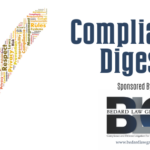Telling a consumer that signing up for a payment plan will reduce the interest rate on the underlying debt, then sending a letter that informs the individual that interest is accruing on the debt may be confusing to this particular individual, but it is not confusing enough to defeat a defendant’s motion for summary judgment in a Fair Debt Collection Practices Act case.
The Background: The plaintiff entered into a payment arrangement with the defendant during a phone call. On the call, the representative informed the plaintiff that the interest rate on the debt was being reduced to 5.99%, but if any of the 11 monthly payments were missed, the arrangement could be nullified.
- “Enrolling now will help you lock in a low interest rate, while ensuring you are not charged late payment fees for the duration of the program,” the representative informed the plaintiff.
The defendant then sent a letter to the plaintiff, which conveyed essentially the same information.
- The plaintiff also started receiving billing statements, one of which indicated that $11.14 in interest had accrued. The statement also included a disclosure that because interest was accruing, the amount due on the day the payment was made may be greater.
The plaintiff filed suit, alleging the statement violated Section 1692e of the FDCPA because the language in the phone call and in the collection letter implied that his debt would be satisfied with a series of fixed payments that were not subject to change, but the language in the statement contradicted that belief because it said that the amount due on the day the payment was made may be greater.
The Ruling: The claim left Judge Brian Cogan of the District Court for the Eastern District of New York shaking his head.
- “It is hard to fathom, and plaintiff makes little effort to explain, how the least sophisticated consumer could think that the payment plan would be free of interest when the first thing he heard about the plan is that it would ‘reduce the interest rate,’ not remove interest altogether,” Judge Cogan wrote in granting the defendant’s motion for summary judgment.
- “There is nothing inherently contradictory about debt settlement plans that include interest, and the FDCPA does not and should not bar such arrangements,” Judge Cogan ruled. “These settlements help people escape debt by offering terms that ease the burden of their existing debt, as the payment plan did here by sharply reducing plaintiff’s APR and removing late fees. Finding liability in cases like this would disincentivize debt collectors from offering debt settlement plans and could ‘end up hurting the least sophisticated consumer by making her pay higher interest rates, collection costs, or depriving her of access to credit at all, rather than helping her.’ “








